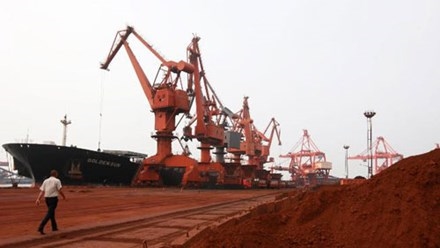 Society
Society

Việt Nam has banned the import of soil into the country, said the Ministry of Agricultural and Rural Development (MARD).
 |
| Illustrative Image. — Photo tienphong.vn |
HÀ NỘI – Việt Nam has banned the import of soil into the country, said the Ministry of Agricultural and Rural Development (MARD).
The ministry made the affirmation after the General Department of Viet Nam Custom (GDVC) sent a dispatch to the ministry asking to allow the import of soil.
Early last week, the Customs Department of Hải Phòng City reported problems to the GDVC about quarantine procedures for soils including clay, kaolin, bentonite, and fire-proof clay.
The current Commercial Law does not include regulations on soil import management, said the GDVC. The general department proposed the ministry deliver guidlines to remove the barrier for businesses importing soil to the country.
However, according to Nguyễn Thị Kim Anh, head of the ministry’s Legal Department, importing soil and harmful microorganisms into the country was banned by the Plant and Protection and Quarantine Law issued in 2013.
Exceptional cases must be approved by the MARD, said Anh.
“Exceptional cases are donated soil or soil for exhibitions,” she said.
Head of the ministry’s Cultivation Department, Ma Quang Trung, said the ministry had not dealt with any case to do with importing soil for agricultural production or fertilizer making.
Businesses are permitted to import chemicals and additive substances for fertilizer as per the regulation of the Government decree, said Trung.
The department needed to consider the reason for the attempted import of soil in Hai Phong, but the reasons were currently unclear, he said.
According to agriculture experts, importing soil needs to be strictly supervised, due to the potential impact on the environment.
“The ban on importing soil in the Plant Protection and Quarantine Law aims to protect domestic biodiversity because the soil imports might bring harmful creatures into the country, causing danger for the environment which we cannot control," said Anh.
Dr. Nguyễn Xuân Lai, head of Agricultural Soil Institute said importing soil must be considered carefully. Việt Nam has not yet imported soil.
The country does not have an agricultural demand for imported soil, said Lai.
Việt Nam has an abundant source of clays and kaolin, the expert said. — VNS




